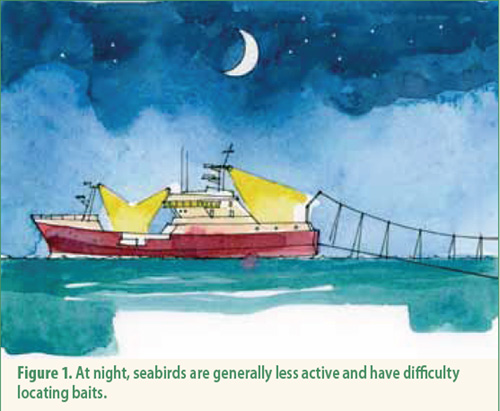The 12th Conference of the Parties to the Convention on the Conservation of Migratory Species of Wild Animals (Convention on Migratory Species; COP 12), meeting last month in Manilla, the Philippines adopted Resolution UNEP/CMS/COP12/CRP25 on Bycatch. The adoption followed deliberations by the CMS Aquatic Working Group under the Chair of Barry Baker, the CMS-appointed Councillor for Bycatch, supported by Documents UNEP/cms/Doc.21.2.4/Rev. 1 and UNEP/CMS/COP12/Doc.24.4.4 (click here to access the documents).
The new resolution is a consolidation of earlier resolutions on the subject adopted by the CMS, commencing in 1999 at its Sixth COP held in Cape Town, South Africa. It covers bycatch of seabirds, marine mammals, marine turtles and non-target fish species by trawls, purse seine nets, longlines, gillnets, driftnets and by other fishing methods.
The 2018 resolution largely covers matters already in the four earlier bycatch resolutions, which have now been repealed. However, an addition is text on animal welfare that recommends an evaluation of the welfare implications of bycatch of marine mammals, including investigation into the sub-lethal effects of bycatch-related injury and stress, and their conservation implications.

Setting longlines at night (along with other mitigation measures) reduces bycatch of ACAP-listed albatrosses and petrels
Barry Baker also represented ACAP at COP12, presenting a Statement on behalf of the Agreement, which referred to its activities and achievements of the last three years. He also drew attention to a newly perceived threat facing seabirds identified by ACAP: the intentional take of albatrosses by squid jiggers.
Read another news report on the new CMS bycatch resolution here.
With thanks to Barry Baker.
John Cooper, ACAP Information Officer, 10 November 2017

 English
English  Français
Français  Español
Español